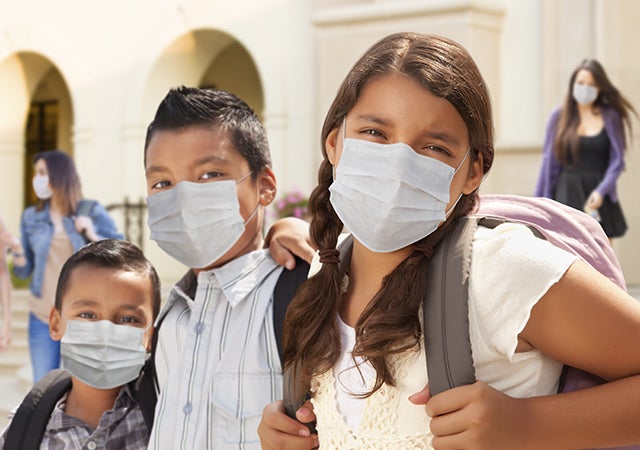A new era for ourselves and our children: Mental Health tips to combat children and parents’ pandemic stress

By Despina Vassiliou and Janet Perlis
Amidst the new reality we are all living with during this global pandemic, our children have returned to school with new rules and protocols in place. Comfort levels vary; some students are eager to return to school while others find it difficult to be back. Some of our children are handling the pandemic well and take it in their stride while others show signs of stress resulting in the emergence of new fears. The reality is that we are all under a new stress that has been unpredictable, long-lasting, and has impacted all aspects of our social, academic and work lives. Some have been impacted by the loss of loved ones and loss of employment. While the consequences vary, each of us has been affected to some degree both emotionally and/or physically. Due to the prolonged nature of the pandemic, we now appear to be experiencing quarantine exhaustion.

So how do we help ourselves and our children to move forward?
- Self-care. Reaffirm your own safety and security first. For example, on an airplane, the parent must put on their oxygen mask first before they help their children. We must do the same for our mental health. If parents do not take the time to take care of themselves, we will not have the capacity to take care of others. Make time to do things that can replenish you, whether it’s a bubble bath, a walk, or connecting with other parents. Remember, you are modelling for your children.
- Look for the positives. Help children identify what others are doing to make things better and encourage them to do the same. The “ça va bien aller” rainbows gave children something to do during the isolation period that empowered them to cheer up others. Look for such examples on the news or social media.
- Update routines, rituals and structure. Having clear expectations of what to do and when helps diminish the stress of the unknown related to the pandemic. These routines and rituals will now include new elements, such as more handwashing as it helps stop the spread of germs, and taking your shoes off when you return home from school.
- Manage concerns. When your child is sharing or demonstrating specific concerns (e.g., difficulty completing school work) take the time to problem-solve and help them break down the task into smaller, more manageable bits. This may entail creating lists, a schedule with time limits/deadlines for the smaller tasks, and rewards for completing the task. If they are concerned about COVID-19, discuss all of the protocols in place at school, in the community and at home (e.g., frequent handwashing, wearing masks, social distancing) that have been put in place for everyone’s safety. You may have to explain why these rules are in place. There are several books available online to help with this.
- Monitor your child’s reactions. Have you noticed any changes in mood, eating or sleeping habits? Are they more irritable? Has your child been stressed due to COVID-19 or from before, or since returning to school? Try to take note of what changes you are noticing and since when. If you notice significant changes, it may be time to seek help from your child’s doctor.
- Build coping strategies. Work with your children to identify what helps calm them and what can reduce their stress. Help them identify the signs in their body that signal something that is bothering them (e.g., tension in arms, butterflies in the tummy).
- Remind them about the strategies. They have used in the past that have worked and help them to apply them to related things that are bothering them today.
No matter how we are impacted by the pandemic, there is one outcome that we cannot forget: It provides a unique opportunity to build resilience. By following the suggested strategies, we can help ourselves and our children bounce back. As with every crisis – growth can result for ourselves and our children.
By Despina Vassiliou, Ph.D., and Janet Perlis, M.Ed. are psychologists at the English Montreal School Board.









